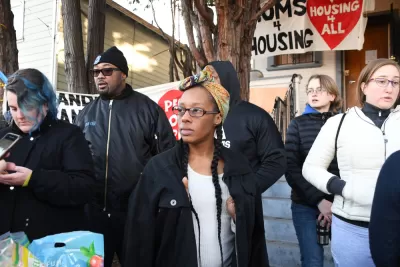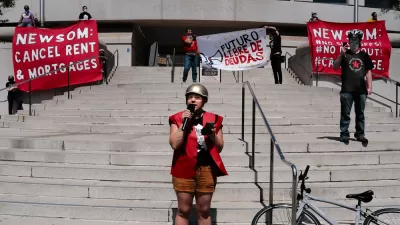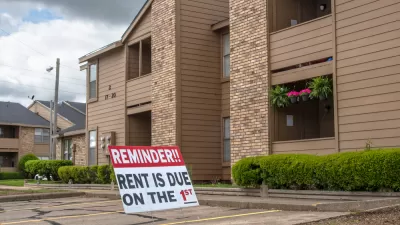Tenant organizers and legal services groups are working vigorously to get ahead of eviction cases as housing court processes restart.

Though many advocates are working on extensions, eviction moratoriums across the country are drawing closer to an end, though extreme levels of unemployment continue. While the Federal Housing Finance Agency’s moratorium on single-family home foreclosures and evictions from properties it owns has been extended to at least Aug. 31, the broader CARES Act moratorium on eviction filings for subsidized properties and those with federally backed mortgages still expires on July 25, and the patchwork of state and local moratoriums varies widely in length and coverage.
It is difficult to keep track of moratorium expirations around the country, especially because moratoriums are often extended very shortly before they are scheduled to expire. According to Eviction Lab’s scorecard as of mid-June, there are 17 states that, at one point during the pandemic, had a statewide moratorium but now do not, including Louisiana, Tennessee, Colorado, and Texas. An additional six states never had a statewide moratorium, including Georgia, Ohio, and Missouri. Many cities also had local versions that differ from their states, if their state has one, in length or strength.
Advocates have been fearing the wave of eviction proceedings that would overtake housing courts once moratoriums were lifted. A May 28 report from the UCLA Luskin Institute on Inequality and Democracy estimates that without a substantial infusion of resources or new legislation, 120,000 families, including 184,000 children, are likely to become homeless in Los Angeles County alone in the next few months.
In fact, eviction proceedings were already rising prior to states’ moratoriums being lifted. Few moratoriums cover all the phases of eviction, from notice to filing to removal. In places where the earlier steps are not covered and housing courts have reopened, eviction cases filed since March are proceeding. That means many may have reached the stage of actually removing tenants by the time that is legally allowed again.
While they are still hoping that large-scale rent relief or forgiveness will come through to make it less necessary, housing advocates and tenant organizing groups are working tirelessly to brace for the evictions surge, preparing a range of responses.
....
FULL STORY: As Moratoriums Start to Lift, Preparing for an Eviction Wave

Study: Maui’s Plan to Convert Vacation Rentals to Long-Term Housing Could Cause Nearly $1 Billion Economic Loss
The plan would reduce visitor accommodation by 25,% resulting in 1,900 jobs lost.

Alabama: Trump Terminates Settlements for Black Communities Harmed By Raw Sewage
Trump deemed the landmark civil rights agreement “illegal DEI and environmental justice policy.”

North Texas Transit Leaders Tout Benefits of TOD for Growing Region
At a summit focused on transit-oriented development, policymakers discussed how North Texas’ expanded light rail system can serve as a tool for economic growth.

Why Housing Costs More to Build in California Than in Texas
Hard costs like labor and materials combined with ‘soft’ costs such as permitting make building in the San Francisco Bay Area almost three times as costly as in Texas cities.

San Diego County Sees a Rise in Urban Coyotes
San Diego County experiences a rise in urban coyotes, as sightings become prevalent throughout its urban neighbourhoods and surrounding areas.

Los Angeles County Invests in Wildfire Recovery for Parks, Trails, and Open Space
The $4.25 million RESTORE Program supports the recovery of parks, trails, and open spaces damaged by the January 2025 wildfires through targeted grants that promote community healing, wildfire resilience, and equitable access to nature.
Urban Design for Planners 1: Software Tools
This six-course series explores essential urban design concepts using open source software and equips planners with the tools they need to participate fully in the urban design process.
Planning for Universal Design
Learn the tools for implementing Universal Design in planning regulations.
Smith Gee Studio
Alamo Area Metropolitan Planning Organization
City of Santa Clarita
Institute for Housing and Urban Development Studies (IHS)
City of Grandview
Harvard GSD Executive Education
Toledo-Lucas County Plan Commissions
Salt Lake City
NYU Wagner Graduate School of Public Service





























